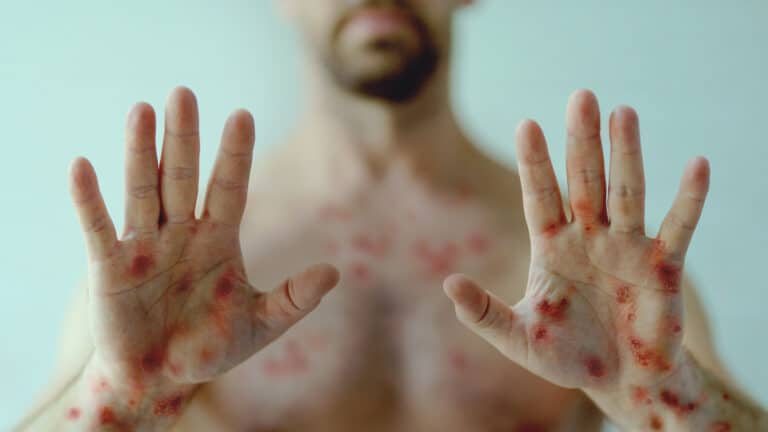Mixing antidepressants and alcohol is not recommended, as alcohol can worsen depression symptoms. This can make depression more difficult to treat. Taking sertraline (Zoloft), for example, while drinking alcohol, can impair judgment and decision-making. Learn more about the risks of mixing Zoloft and Alcohol.
Zoloft and alcohol both affect how the brain transmits and interprets messages. These interactions happen because Zoloft affects the brain’s neurotransmitters which control the brain’s message-exchange system. Alcohol is a neurological suppressant which means that mixing alcohol with Zoloft can amplify the effects of both.
Alcohol Use and Abuse
In 2020, at the height of the pandemic, 60 percent of all adult American consumers drank alcohol, down from 65 percent in 2019. The average number of drinks consumed per week fell from 4 to 3.6, mostly beer, followed by wine and liquor. Although the statistics fell slightly post-pandemic, over 380 people die daily from excessive alcohol use. That’s around 140,000 people each year.
Alcohol Abuse
There are distinct differences among the terms alcohol abuse, alcohol use disorder, and alcoholism. For instance, a person may abuse alcohol in the following ways and still not be classified as having alcohol use disorder or alcoholism.
These ways include:
- Frequent binge or high-intensity drinking
- Drinking to the point of blacking out
- Consuming alcohol with the intent of becoming drunk
People who abuse alcohol often make excuses about their alcohol consumption and feel they cannot relax or have any fun unless they drink. The euphoria of drinking is usually short-lived as the adverse effects of alcohol abuse set in.
Alcohol Abuse Statistics
Excessive alcohol use remains prevalent with most binge drinkers living in the Midwest.
- The state with the largest alcohol-related death rate per capita: New Mexico
- Southern states have the highest number of alcohol-related under-21 deaths and deaths due to accidents, homicide, etc.
- California, Texas, and Florida have the highest death rate overall.
- Over 25 percent of adults aged 18 and throughout have engaged in binge drinking in the last 30 days.
Often those abusing alcohol take antidepressants. Those with alcohol use disorder or alcoholism are more likely to abuse antidepressants.
Antidepressant Abuse
Behavior changes when antidepressants are misused. Secretive behavior, lying, and engaging in risky behavior are signs of antidepressant abuse. Personal and professional lifestyles change. Being late to work, struggling with job duties, a lack of self-care and isolation are signs of a person abusing antidepressants.
Side effects include:
- Cognitive difficulties
- Impaired coordination
- Dizziness and confusion
- Fainting
- Convulsions
Overdoses of antidepressants can cause serotonin syndrome. Serotonin syndrome can be mild or severe and is caused by the build-up of the neurotransmitter in the body. If excessive serotonin is left untreated, it can be toxic and life-threatening. Zoloft is no exception, as it works on serotonin to aid in treating depression.
Recent Zoloft Statistics
Zoloft ranked number 12 out of the top 300 prescribed drugs in 2020, with an estimated 7.7 million patients and 38 million prescriptions in the United States. That equates to over 1 in 4 people in the U.S. taking either the brand Zoloft or its generic equivalents, sertraline or sertraline hydrochloride.
Combining Zoloft with alcohol use is not recommended as they both work on the central nervous system and can work together to create both short-term and long-term side effects. In severe cases, the interactions can be life-threatening. Therefore, people who are taking Zoloft for major depressive disorder should avoid alcohol.
The Side Effects of Mixing Alcohol and Zoloft
Everyone has different body chemistry, so the side effects of mixing Zoloft and alcohol will vary from individual to individual. Short- and long-term side effects of mixing alcohol and Zoloft include, but are not limited to:
- Cognitive issues such as impaired judgment, memory loss, or difficulty concentrating
- Delirium, hallucinations, and blackouts
- Cardiovascular problems such as an irregular heartbeat (palpitations) or rapid heartbeat (tachycardia)
- Gastrointestinal upset, including diarrhea and vomiting
- Liver damage, including cirrhosis
Alcohol use may cause Zoloft to be less effective in treating depression. This can lead to suicidal thoughts or actions over time. Mixing a cocktail of Zoloft and alcohol can, in severe cases, lead to depressed breathing, coma, and death.
Those with alcohol use disorder or alcoholism may find themselves unable to recognize side effects from mixing Zoloft or other antidepressants as they may be similar to what they already experience from their addiction.
Zoloft and Alcohol Addiction
There is some dispute as to whether Zoloft is addictive. Zoloft is a Selective Serotonin Reuptake Inhibitor (SSRI). Although considered non-physically addictive, SSRIs work on the neurotransmitters in the brain, which alters brain chemistry.
This may lead to psychological dependence if misused. Couple misuse with alcohol addiction and the effects are exacerbated. Addiction is a cycle that needs help to break away from, especially when a dual diagnosis is involved.
Seeking Help for Abuse and Addiction
If someone recognizes the signs that they need help for an addiction, know that most people cannot go it alone. There needs to be the resolve and commitment to quit. It can be difficult to control behavior, especially if a physiological component is involved.
Addiction causes changes in the brain and the body. Seeking a treatment program that takes someone through the detoxification process, withdrawal symptoms, and long-term aftercare with an interdisciplinary medical team will ensure that both medical and mental health needs are addressed.
Treatment and Aftercare
A detox may involve medications designed to ease withdrawal before entering rehabilitation. Effective treatment focuses on the whole person and helps them understand their behaviors and addiction. Treatment doesn’t end there.
Long-term aftercare programs can help patients maintain their sobriety and avoid relapse. These include peer support through 12-step programs like Alcoholics Anonymous, Narcotics Anonymous, and other support programs.
Addiction Treatment is not One-Size-Fits-All
Each person’s unique needs will change as treatment continues. Treating dual diagnoses like alcoholism and depression where antidepressants like Zoloft are mixed with alcohol is no exception.
Those ready to seek help for alcohol or drug addiction can contact us. Southern California Sunrise Recovery Centers, located in Orange County, Laguna Niguel, and Mission Viejo, have inpatient rehabilitation programs that fully immerse patients in their recovery process with our dedicated team of medical and mental health professionals.






